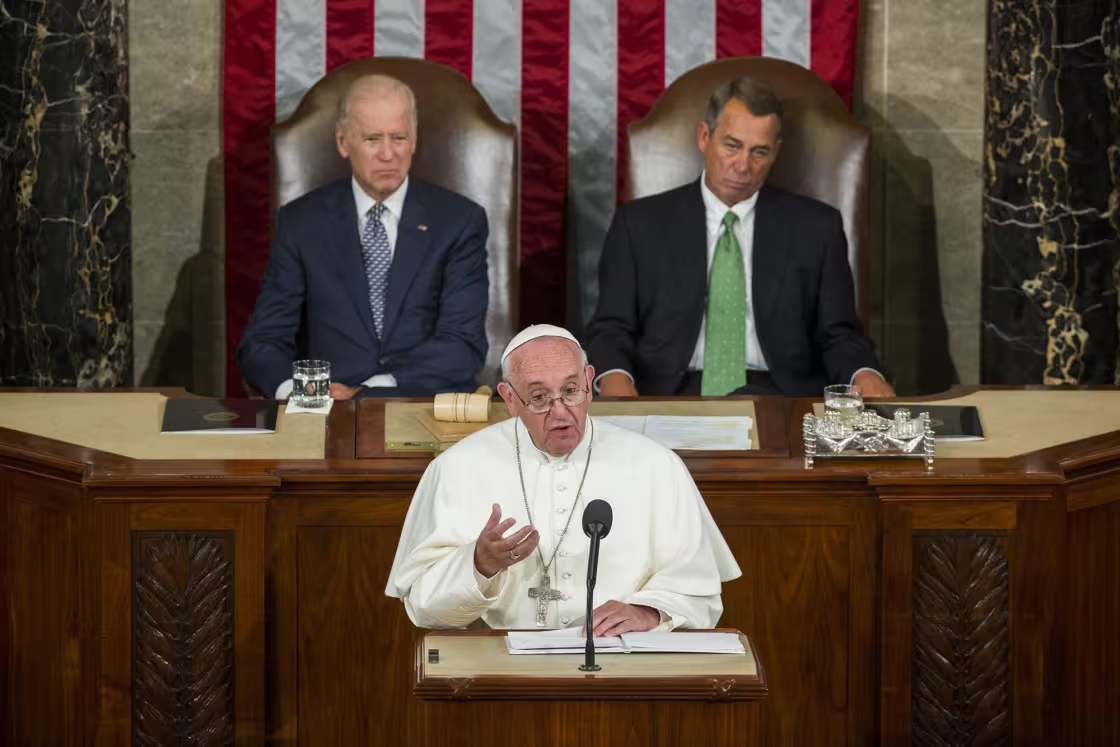Breaking Barriers: Pope Francis Challenges Congress on Immigration and Faith

Pope Francis: A Historic Moment in Congressional History
In a groundbreaking moment that etched itself into the annals of American political history, Pope Francis became the first pontiff ever to address a joint session of Congress. This unprecedented event not only highlighted the Pope's global influence but also symbolized a remarkable intersection of religious leadership and political dialogue.
The historic visit, meticulously documented by the House of Representatives, was more than just a ceremonial appearance. Pope Francis delivered a powerful speech that transcended traditional boundaries, offering profound insights and challenging lawmakers to consider broader humanitarian and social issues.
His address to the U.S. government was a testament to his unique ability to bridge diverse perspectives, speaking with compassion and wisdom that resonated far beyond the marble halls of Capitol Hill. The Pope's visit represented a significant diplomatic and cultural milestone, demonstrating the potential for meaningful dialogue between religious leadership and political institutions.
As the first papal address to a joint congressional session in American history, Pope Francis's appearance will be remembered as a defining moment of cross-cultural understanding and mutual respect.
